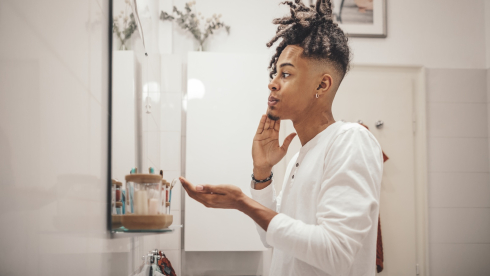To understand the story of the current crop of African American fencers on the U.S. Olympic Team, you have to appreciate the legend of Black fencing master and Olympian Peter Westbrook.
It was the summer of 1984 in Los Angeles. Westbrook, then 32, had just finished competing in his second Olympics. Finally. Success. The lone Black fencer on Team USA’s roster stood on the podium in the Long Beach Convention Center and accepted his bronze medal. He made history that day by becoming the first African-American fencer to individually medal in the Olympics. He went on to compete in three more.
For 30 years now, Westbrook’s accomplishment has remained uncontested. Many tried, even fewer came close. In 1991, Westbrook opened his own foundation in hopes of teaching his craft to inner-city kids that grew up similar to how he did in Newark, New Jersey. By introducing the elite, expensive sport to underserved communities in the New York metropolitan area, Westbrook ultimately began grooming the next class of great Black fencers.
Some 85 percent of the students who attend classes at the Peter Westbrook Foundation (PWF) are Black or Latino. The not-for-profit organization has worked with over 4,000 kids and produces collegiate, national and Olympic-level fencers. Through a combination of expertly-planned training regiments and thoughtful tournament scheduling, they have attained unprecedented success, including world championship and national medalists.
Keeth and Erinn Smart were two of Westbrook’s first students. The brother and sister took the program to new heights when they competed in Sydney at the 2000 Olympic Games alongside Ahki Spencer-el, another Westbrook prodigy. After that, the Smart siblings, Ivan Lee and Kamara James repped the PWF in 2004 and in 2008, on both the men’s and women’s Olympic squads. But in 2008 both Keeth and Erinn Smart earned silver medals as part of Team USA.
This year, three of the five African-American fencers on Team USA trained at the PWF: Ibtihaj Muhammad, Nzingha Prescod and Daryl Homer.
For Prescod and Homer, this will be their second attempt at capturing the gold – Homer finished sixth in 2012, while Prescod fell in round two.
“Each one of us at the foundation, we’re really like his kids,” says Prescod, the first African-American woman to medal at the Senior World Championships. “He’s a mentor. He fences sabre, and I fence foil. He’ll talk to me about some mental strategies, like he would imagine he was an animal on the strip and how he was able to overcome adversity. It’s great to have that guidance.”
Westbrook’s mentorship has inspired others to do the same, Homer says. There’s a network of strong African-American athletes that Homer has linked to, including his role model, Keeth Smart, who in 2008 became the first American ever to rank number one in the sabre division. “I know they root and support me regardless of my results,” he says.
Muhammad, the first member of Team USA to compete in hijab, sought out the PWF after a youth fencing tournament where a persnickety parent suggested she go fence with the “other Black kids” in New York. “I don’t think I would’ve made it without the Peter Westbrook Foundation,” says Muhammad. “The PWF is such a large part of who I am. I feel like I grew up as a fencer in the PWF. Anyone who has an opportunity to compete as PWF, we just have this unique bond and compete for people you love and genuinely care about.”
Jason Pryor, a native of South Euclid, Ohio and the number one fencer in the country, trained in his hometown at the Alcazar Fencing club. Pryor, who is also Black, has competed against PWF epee fencers since he was a kid. A couple of years ago, he met Westbrook during one of the Saturday morning sessions. “Ben Bratton invited me out,” recalls Pryor. “I got the chance to talk to Peter. He’s incredible. He’s got such a personality, he has an aura, he’s fast talking, and a really interesting guy to talk to.”
Pryor, Prescod, Muhammad and Homer say they aren’t focused on besting Westbrook’s bronze, but it sure would be nice to stand on that Olympic podium. (Miles Charley Watson is the fifth Black fencer on Team USA, but he did not speak to Ebony for this story. ) Prescod is focusing on “little goals, literally one task at a time,” she says. “It’d be awesome if one of us did it.” Muhammad knows that on her best day she can beat anyone. “You have to walk into the Olympics with the right mindset,” she says. “As a competitive person, that’s what you’re fighting for. I’ve worked really hard for my world ranking – I’m number eight in the world. It would be a blessing to leave with any medal at all. If that’s what is written for me, I will gladly receive it.”
Homer is concentrating on putting forth his best effort. “I have thought about it,” he says. “But my mind is focused on competing on my highest level – not a medal.”
Pryor’s strategy, meanwhile, is to “orchestrate the perfect storm.”
“I can’t use medals and thinking about the win at the end of the tournament to better myself,” he says. “I focus on the moment, the adrenaline, simply enjoying the moment of where I am and getting the touches. It’s any given Sunday with whoever feels the best. If I were to win a medal it would be life altering, it would be life changing. I don’t think about.”
Olympic Fencing begins with Women’s individual epee on Aug. 6 in Rio de Janeiro.
An earlier version of this story stated that Peter Westbrook competed in six Olympic games and that the 1984 games were his sixth. In actuality they were his second and he only competed in five Olympics.













